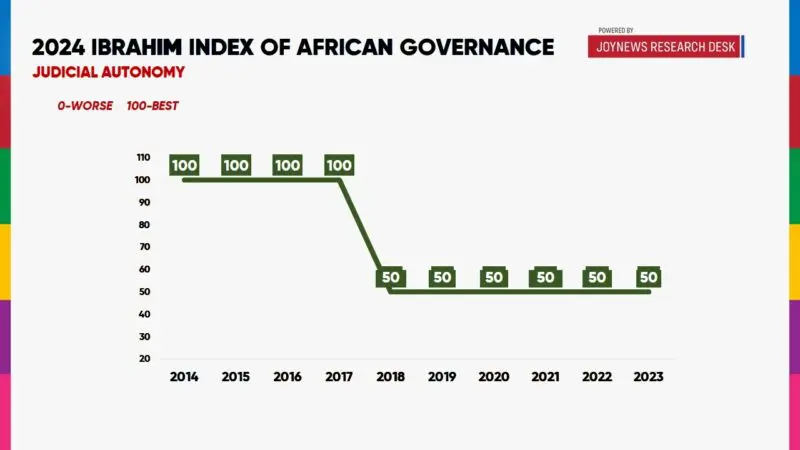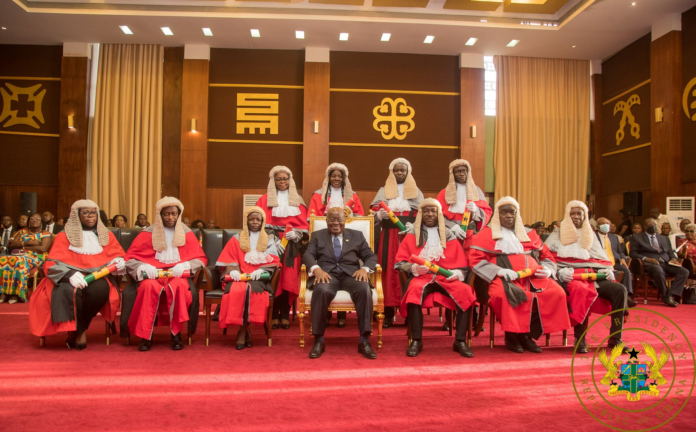Ghana’s judicial independence has dropped significantly, with the 2024 Mo Ibrahim Index on African governance showing a decline in judicial autonomy from 100% to 50% over the past seven years. This sharp decrease casts a shadow on the country’s governance trajectory.
During a recent youth engagement, the Vice President and New Patriotic Party’s presidential candidate, Dr. Mahamudu Bawumia highlighted that Ghana ranks as the seventh-best-governed country in Africa, according to the Mo Ibrahim Foundation.
Yet a closer look at the data from the Mo Ibrahim Foundation revealed the troubling trend in judicial independence—a key pillar of democratic governance.
The index shows that between 2014 and 2017, Ghana’s judiciary maintained a score of 100% autonomy. Starting in 2018, however, this rating dropped by half to 50%, where it has remained through 2023.

Judicial autonomy, as defined by the index, reflects the judiciary’s ability to interpret laws independently, free from political pressure or interference by other government branches.
The report’s findings come amid criticism from civil society groups, who point to the appointment of political actors to the judiciary and the remand of protesters as signs of potential influence on the courts.
The implications of the score drop are significant, suggesting a need for stronger safeguards around judicial independence.
Ensuring an impartial judiciary will be crucial to reinforcing public trust and is likely to become a focal issue in the run-up to the upcoming elections.

